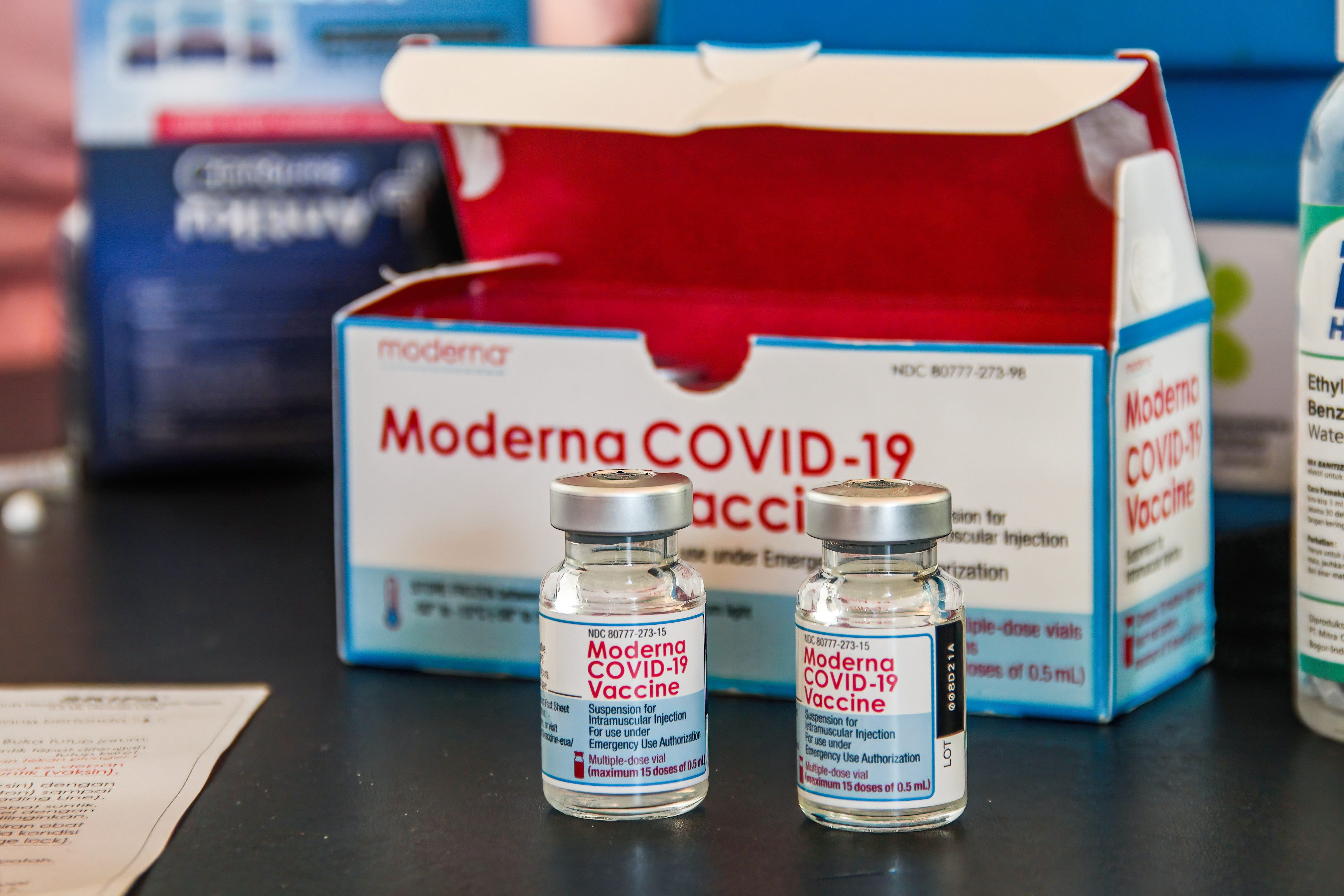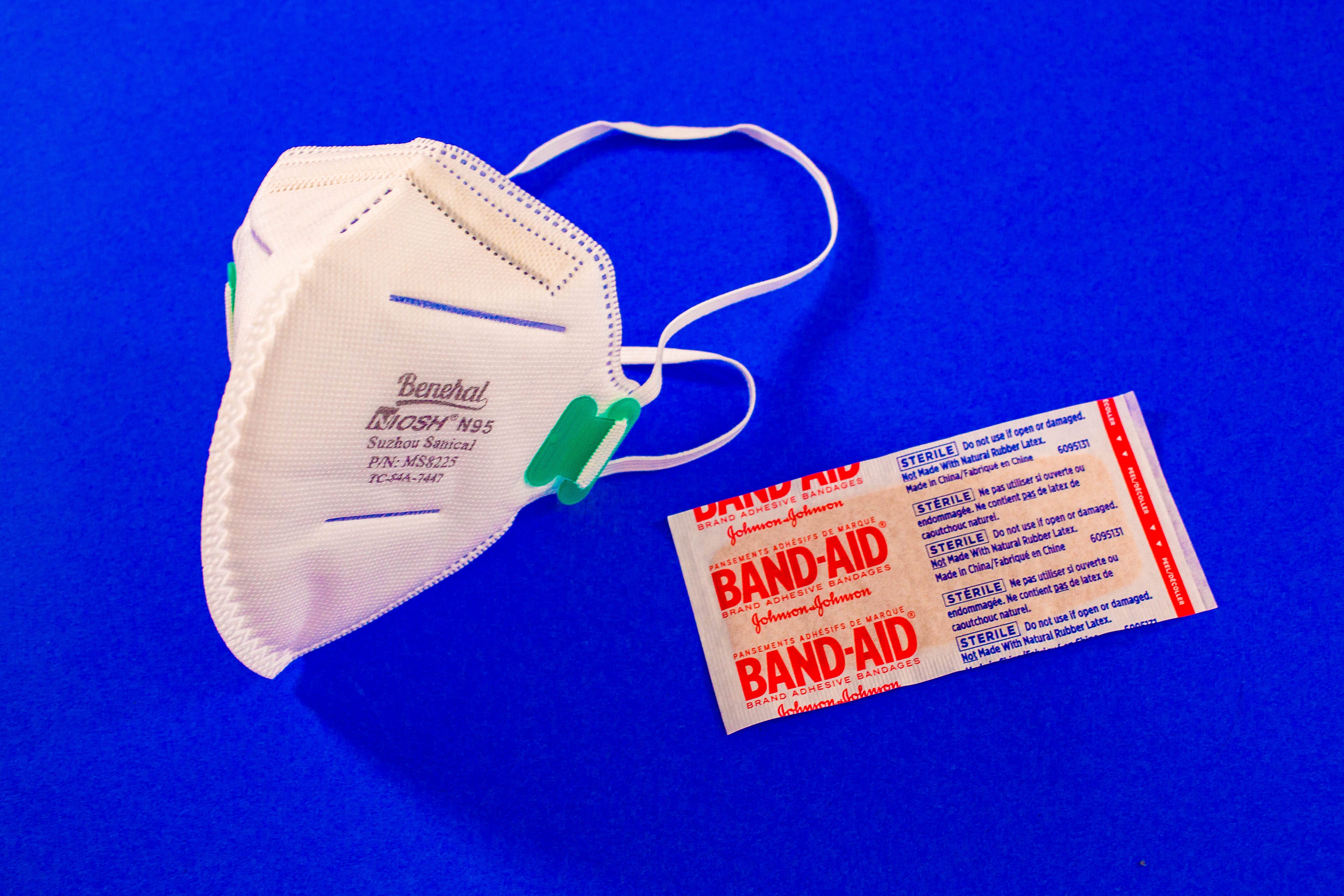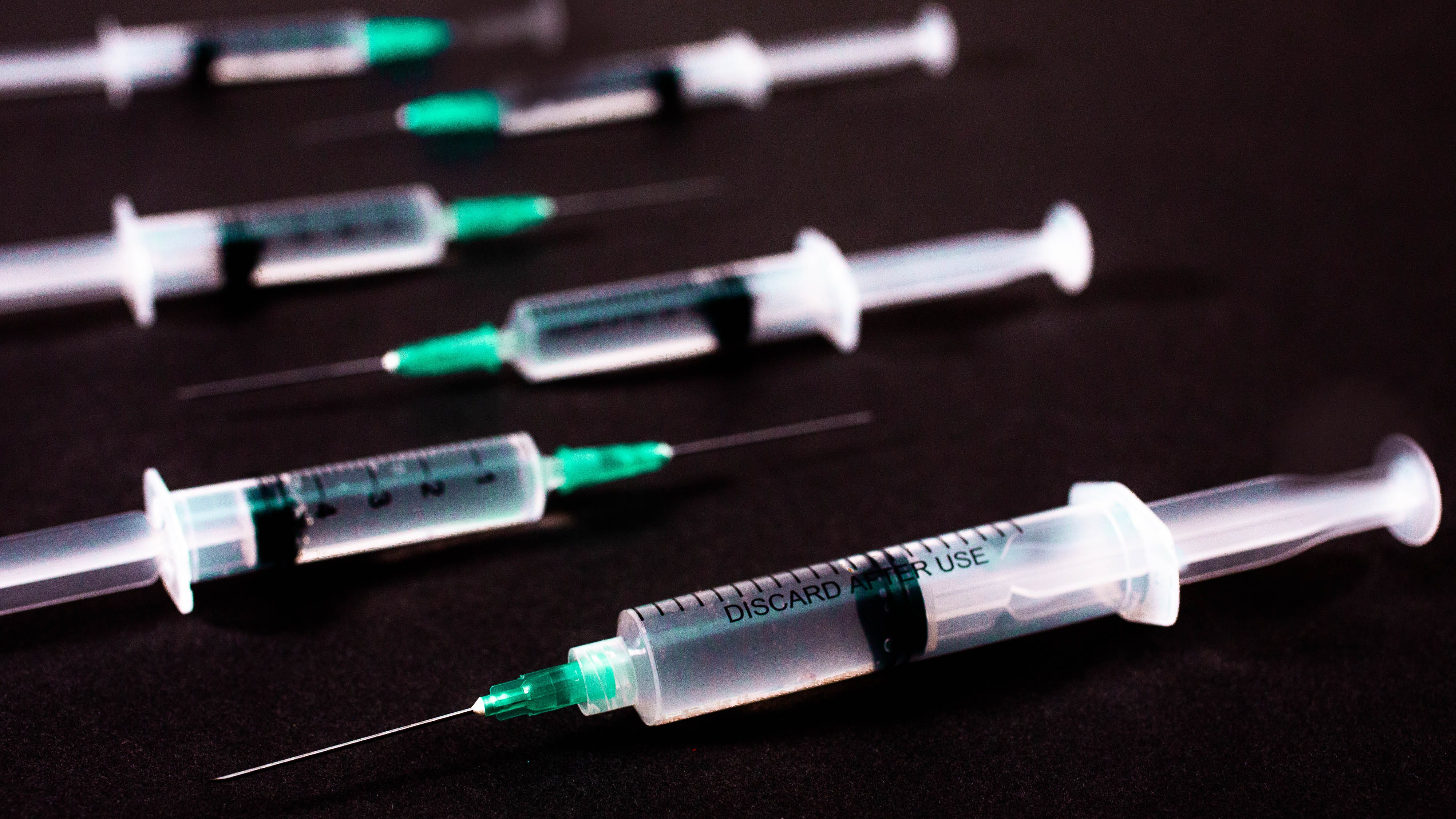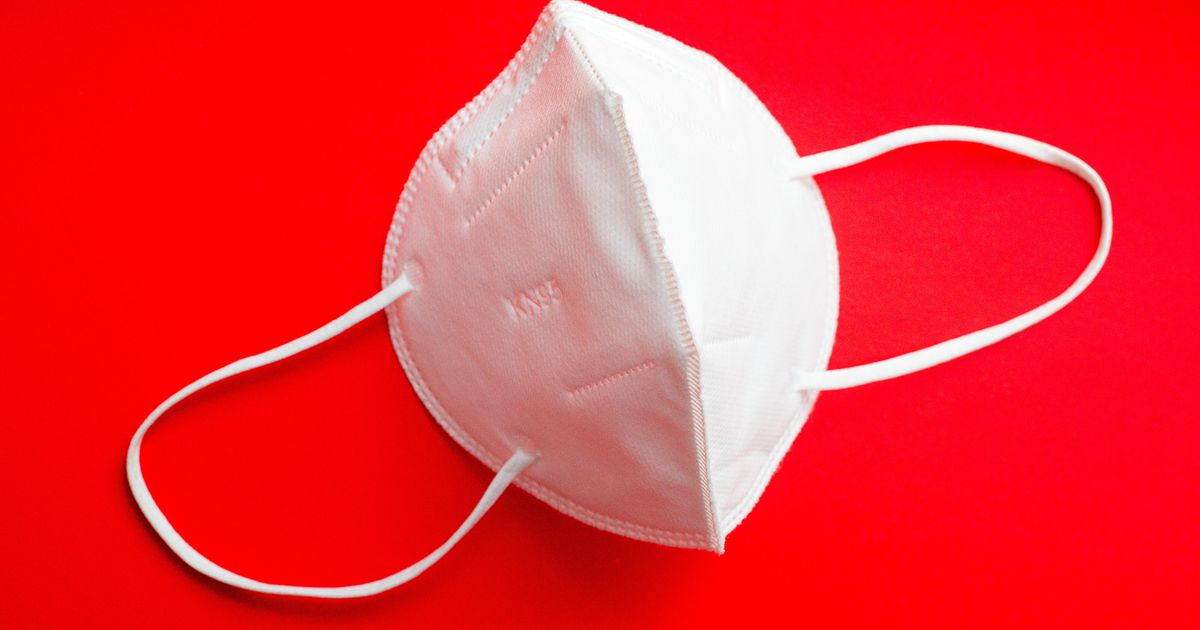
The Moderna booster is here. The CDC recommends you get a booster shot.
Algi Febri Sugita/Getty Images
We won’t know till next week how effective the Moderna vaccine is in protecting against the omicron variant, Moderna Chairman Noubar Afeyan said on Friday. Preliminary data out of South Africa suggests the mutated COVID-19 virus may spread more easily than the delta variant but cause milder illness.
The initial information for US cases of the omicron variant is less promising for those who are fully vaccinated with the Moderna, Pfizer or Johnson & Johnson vaccines. Rochelle P. Walensky, director of the Centers for Disease Control and Prevention, said on Friday that 80% of confirmed US cases with the mutated virus were fully vaccined for the disease. And a third of the cases had received a booster, although some may have not been boosted in time to be fully protected before being infected with the omicron variant.
Omicron has pushed talk of a COVID booster to top of the page. Nearly 23 million have received the Moderna vaccine booster, according to the CDC, which may be key to being protected. Pfizer and BioNTech said on Wednesday that a third dose, or booster, of their COVID-19 vaccine may be needed to restore protection against the variant. Two shots may not be enough.
Scientists are still learning about the omicron variant, including how easily it can pass between people, how serious an infection it can cause and if it can evade immunity. As of Friday, according to Jeff Zients, White House COVID-19 response coordinator, the US is administering 1.1 million booster shots a day, the most since May. The jump comes as the White House is stressing the need for COVID-19 vaccine heading into winter, including booster shots. (President Joe Biden’s campaign also includes “free” at-home COVID-19 test kits and stricter travel rules for international travelers.)
Health professionals believe that booster shots from Moderna and Pfizer could help slow COVID-19’s spread, reducing hospitalization and deaths, as the effects of the vaccine weaken over time. The CDC urges booster shots for anyone over 18 six months after their second dose of Moderna or Pfizer, or two months after getting a single Johnson & Johnson dose.
The COVID-19 vaccines have proven so far to be highly effective in preventing hospitalization. People who are unvaccinated are 10 times more likely to be hospitalized if infected. With the federal vaccine mandate halted by a court order, Biden is turning to other measures to get booster shots administered. The government has also ordered 13 million courses of antiviral drugs in anticipation of higher caseloads this winter.
Here’s what you need to know about the Moderna booster, including doses, side effects and how to get a free ride. For more details, here’s the latest on COVID-19 vaccines for kids, how you can get a free COVID-19 test kit soon and what to know about breakthrough infections.
When will Moderna know how effective its COVID vaccine booster is against omicron?
On Friday, Moderna’s Afeyan told Fox News he expects to see data on the effectiveness of the Moderna vaccine against the mutated variant next week. “We don’t have that data yet,” he said. “We are testing thoroughly all aspects of what we could do.”
“Our expectation,” he said, “is that a boosted person will be protected, certainly against serious disease and hospitalization.”
CNET asked Moderna for a comment but didn’t immediately get a response.
Pfizer has been more open about the effectiveness of its vaccine against the variant and on Wednesday said early lab results suggest that the first two doses of its vaccine might not fully protect against the variant and three doses may be needed to restore those protections.
Is Moderna making an omicron booster shot?
Scientists worry the omicron variant could spread more quickly than the now-dominant delta variant because of the number of mutations the new strain has compared with delta. Moderna is currently working on an omicron-specific booster vaccine, along with testing a COVID-19 vaccine that could protect against several mutated strains of the coronavirus.
Like every other vaccine-maker around the world, Moderna is testing the effectiveness of its COVID-19 vaccine against omicron, but it may be weeks before lab tests show concrete evidence of how well Moderna protects people from the new variant.
As part of its booster testing, Moderna is also investigating whether a 100-microgram dose of its booster provides better protection against the omicron variant — in other words, a third dose rather than a half dose as the booster is currently formulated now.
If Moderna needs to make a new vaccine modified for the variant, it could be available early in 2022.
When could we know if a COVID vaccine booster protects against the omicron variant?
While it could be two or three weeks until we know more about how easily omicron can pass from person to person, and how resistant the COVID variant is against the current crop of vaccines, Dr. Rochelle Walensky, director of the Centers for Disease Control and Prevention, said in a White House briefing on Tuesday that vaccines work and she anticipates they “will at least in part provide some protection against omicron.”
In the same briefing, Dr. Anthony Fauci said scientists are right now examining whether vaccine-induced antibodies lose some of their effectiveness with the omicron variant. Fauci, who is the chief medical advisor to the president, said they could know more as soon as the end of next week.
When is it time to get a COVID-19 vaccine booster shot?
If you got Moderna or Pfizer, six months after the date of your second shot listed on your vaccination card is when you’re eligible to receive your booster dose. The CDC and other health authorities are now urging you to get your booster as soon as you’re eligible, to keep your immune response against omicron, delta and other coronavirus variants as strong as possible. Two months after the Johnson & Johnson vaccine is the time for a booster (more below).
On Dec. 2, Biden also outlined a plan for Medicare to contact the 64 million people it serves and for AARP to reach out to its 38 million senior members. Pharmacies like Walgreens, CVS and RiteAid should also contact people who got a vaccine at their retail stores when it’s time to schedule another dose.
Should people who are pregnant get a booster shot?
The COVID-19 booster recommendations apply to all people 18 years and older, including those who are pregnant. In fact, the CDC urges pregnant people to get a COVID-19 vaccine — and a booster is half a full vaccine dose.
“People who are pregnant or recently pregnant are more likely to get severely ill with COVID-19 compared with people who are not pregnant,” the CDC says on its website.
A recent study also linked COVID-19 infection in pregnant people to higher risk of stillbirth. However, there is no evidence that getting vaccinated decreases fertility in women or men.
Is the Moderna booster shot a third dose?
Booster shots of COVID-19 vaccines are currently half doses of the same vaccine used in the first two full shots. The goal is to top up the vaccine formula that reinforces the body’s immune response against the virus and its variants. The Moderna booster authorized by the CDC is a 50-microgram dose, while the first two shots were each 100 micrograms.
Moderna is also working on a combination shot that contains this year’s flu vaccine and its COVID-19 booster vaccine, but that’s not available right now.


Moderna’s booster shot is currently half the size of a full dose.
Sarah Tew/CNET
How do I know which pharmacies have Moderna appointments?
Boosters are available at roughly 80,000 places across the country, including over 40,000 local pharmacies. Some 90% of Americans have a vaccine site within 5 miles of where they live.
A terrific free service in conjunction with the CDC sends you information when you text your ZIP code to this number: 438829. The response will show you COVID-19 vaccine locations in your area, along with the brand they carry for certain age groups, for instance, Moderna 18+. This can save you the trial and error of calling around, or showing up to your appointment to find that your booster of choice isn’t available. The text can also give you a shortcut to make your appointment right from your phone screen.
You can also check Vaccines.gov to see which vaccines are available where, and call 800-232-0233 for vaccine information.
How can I get a free ride to get my booster shot?
Lyft and Uber are offering free rides for some people who need them. An easy way to access those links for more information is through the text feature above You can also go to Lyft.com/vax or call Uber at: 855-921-0033.
Who can get a Moderna booster shot right now?
As of Nov. 19, all US adults — those age 18 and older — are eligible to get a booster shot of the COVID-19 vaccine. They qualify if it’s been at least six months since they’ve received a second dose of either the Moderna or Pfizer vaccine. Those who received the Johnson & Johnson vaccine are eligible for a booster dose after two months. Adults are encouraged to get whatever booster dose is available to them, even if that means mixing and matching vaccine boosters (more below), in other words, getting a different booster shot than their original vaccination.
What are the side effects of Moderna’s booster?
According to the CDC, those who got the Moderna booster dose reported fewer reactions than they did after the second dose of the vaccine. In its study, the CDC found 95% of those who got Moderna for the first round of vaccine shots chose Moderna for the booster dose.


Moderna’s booster shot is free of charge for all adults.
Sarah Tew/CNET
Is it safe to mix and match vaccine and booster brands? Yes
The US Food and Drug Administration has authorized mixing COVID-19 boosters, which in the US means Moderna, Pfizer and Johnson & Johnson. Any adult eligible for a booster can get any of the available brands of coronavirus vaccines. If you initially received Johnson & Johnson and it’s been two months or longer since you received the initial dose, you’ll be able to get the Moderna or Pfizer booster. If you received Moderna or Pfizer for your first two shots, you could pick any authorized vaccine available to you — including J&J — if you qualify and it’s been six months or longer since your second shot.
Is the Moderna COVID-19 booster shot still free?
All booster shots will be free, regardless of immigration or health insurance status. However, depending on where you get your booster shot — for example, at a local pharmacy — you may be asked to log your insurance status. You may be asked to provide your insurance card information, including your name, date of birth and membership number. You will not be charged for your COVID-19 vaccine or booster shot.
Will I need another COVID-19 booster shot?
The CDC updated its guidance to say that in 2022, some immunocompromised people will be able to get a fourth COVID-19 booster shot. It’s unclear if other groups will need to get a fourth dose at this time, but guidance could change in light of the omicron variant.
For more on coronavirus treatments and vaccines, here’s what we know about monoclonal antibody treatments, the new federal vaccine mandates and why some people may not want the shot.
What does the Moderna booster shot do?
A COVID-19 booster shot — whether from Moderna, Pfizer or Johnson & Johnson — tops off your immune response and guards against a breakthrough COVID-19 infection as the vaccine’s effectiveness decreases over time.
Recent studies of the Pfizer and AstraZeneca vaccines show that their effectiveness can begin to wane after six months. Moderna said early data suggests that those who received the Moderna vaccine in 2020 are showing a higher rate of breakthrough COVID-19 infections than those vaccinated this year, suggesting the need for a booster to maintain high levels of protection.
The information contained in this article is for educational and informational purposes only and is not intended as health or medical advice. Always consult a physician or other qualified health provider regarding any questions you may have about a medical condition or health objectives.


